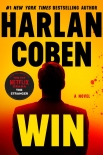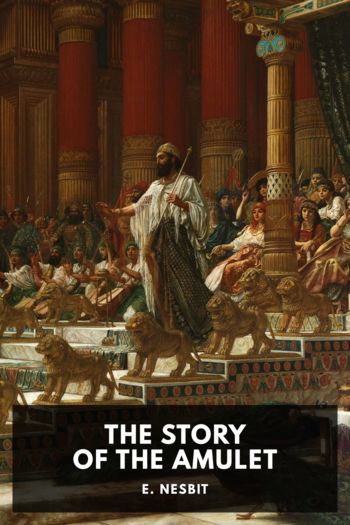WIN, Coben, Harlan [ebook and pdf reader .txt] 📗

Book online «WIN, Coben, Harlan [ebook and pdf reader .txt] 📗». Author Coben, Harlan
“It was taken the day before the attack,” PT says.
I remember that. “How many died again?”
“Seven dead, a dozen injured.”
The photograph was taken in the basement of a town house on Jane Street in Greenwich Village. There are six people in the photograph—four straggly men, two straggly women, all with long hair and garbed in Early American Hippie. All six look elated with huge smiles and bulging eyes; if I blew up the photograph, I’m sure I would see pupils dilated from something in the psychedelic family. All six hold wine bottles high in the air in some kind of bizarre victory salute. Wicks jut out of the top. The bottles, the world would soon learn, are loaded with kerosene. The next night, those wicks would be lit, the bottles thrown, and people would die.
“Do you remember their names?” PT asks me.
I point at the two men in the middle. “Ry Strauss, of course. And Arlo Sugarman.”
The two leaders are household names. In most famous photographs, people search for some kind of extra meaning in the placement of subjects, almost as you would, to stay on subject, with a great painting. You can see that all here. The two men in the middle seem larger, bathed in a more distinct light. Like Rembrandt’s Night Watch, for example, there is a ton going on in the photograph. You would first view it as a whole and then notice the individual figures. Strauss has long blond hair, like Thor or Fabio, while Sugarman has a loose Art-Garfunkel-esque Afro. Strauss holds the Molotov cocktail in his right hand, Sugarman in his left, and their free arms are draped around each other’s necks. They both stare straight into the lens, prepared to take on the world, which they will soon do—and fail miserably.
“How about her?” PT asks, leaning forward and tapping the face of the young woman to Ry Strauss’s right. The woman is petite and looks less sure. Her eyes are on Strauss, as though trying to follow his lead. Her bottle is only half-raised, her gesture more tentative.
“Lark Something?”
“Lake,” PT corrects. “Lake Davies.”
“She was the only one caught?”
“More than two years later. She turned herself in.”
“There was controversy around her sentence.”
“She served only eighteen months. Her defense attorney made a compelling case that her part had been relatively minor—supposedly, the men wouldn’t let the women throw an explosive—and that she’d been young and stupid and in the thralls of her boyfriend Ry Strauss. Ry was the charismatic leader, the Charles Manson so to speak, of the group. Arlo Sugarman was more the nuts-and-bolts guy. Lake Davies also cooperated with us.”
“Cooperated how?”
“Okay, let’s go back.” PT leans forward and points at the various faces as he speaks. “Ry Strauss and Arlo Sugarman were the leaders. They were both twenty-one. Lake Davies was nineteen years old, a freshman at Columbia University. The other woman, the redhead, was Edie Parker from New Jersey. The final two guys are Billy Rowan, a junior from Holyoke, Massachusetts—also Edie Parker’s boyfriend—and the Black guy is Lionel Underwood. Underwood was also a junior at NYU. With me?”
“Yes.”
“This photograph was taken the night before they attacked the Freedom Hall on the Lower East Side. The Freedom Hall was going to hold a USO dance with soldiers and local girls, so their plan was to burn down the hall before the dance.”
I frown. “Attacking a dance.”
“Right? Heroes.”
“Or they were high.”
“These groups believed that the United States was on the precipice of real political change and that violence would speed it up.”
I frown. “Or they were high.”
“Do you remember what happened that night?”
“I’ve read about it,” I say, “but it was a little before my time.”
“The group claimed they never wanted to hurt anyone. It was just going to be property damage. That’s why they threw the Molotovs late at night when they knew the Freedom Hall would be empty. But one of their throws went astray and hit a telephone pole. The wires go down, sparks fly up—and all that distracts a Port Authority bus driver, who’s on the ramp to the Williamsburg Bridge. In a panic, the driver swerves hard to the right. The bus hits a stone wall, flips over the overpass, and plunges into the East River. The deaths were all by drowning.”
His voice trails off.
“So two-plus years later, Lake Davies walks into the FBI office in Detroit and turns herself in. But the fate of the others—Strauss, Sugarman, Rowan, Parker, Underwood—that’s still a mystery.”
I know all this. There have been countless documentaries, podcasts, movies, novels written about them. There was a hit folk ballad that still got radio time called “The Disappearance of the Jane Street Six.”
“Why did she turn herself in?” I ask.
“She’d been on the run with Ry Strauss. That’s what she told us, at least. She said a secret network of radicals had been keeping wanted militants hidden from the law. This wasn’t news to us. Members of the Weather Underground, the Black Panthers, the Symbionese Liberation Army, the FALN, whatever—they were all on the run and getting help in one way or another. At one point, Davies said, Ry Strauss had cosmetic surgery to alter his appearance, using the same doctor who later worked on Abbie Hoffman. She and Strauss kept on the move, staying a step ahead of law enforcement. They ended up on a fishing boat in the Upper Peninsula. The boat capsized, and Strauss drowned. That’s when she decided to surrender.”
“Strauss drowned,” I repeat.
“Yes.”
“Like his victims?”
“Yes.”
I point to the Afroed Arlo Sugarman. “Wasn’t Sugarman almost captured?”
A shadow crosses PT’s face. I see his fingers start to flex and unflex. “Four days after the attack, the FBI got a tip that Arlo Sugarman was hiding in a derelict brownstone in the Bronx. As you can imagine, the Bureau was being stretched pretty thin. We had a lot of agents investigating, but with six suspects to find and with a lot





Comments (0)